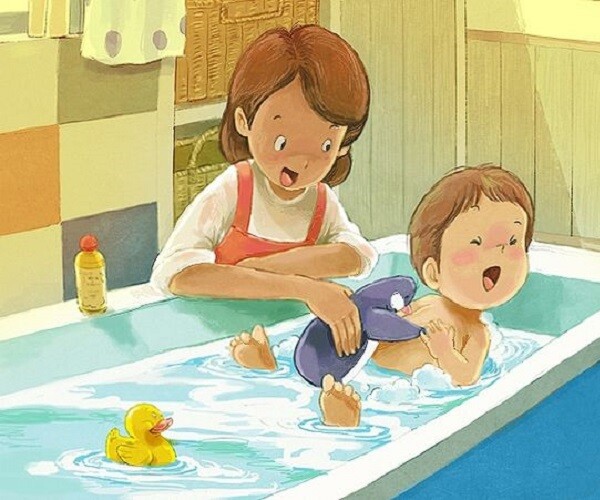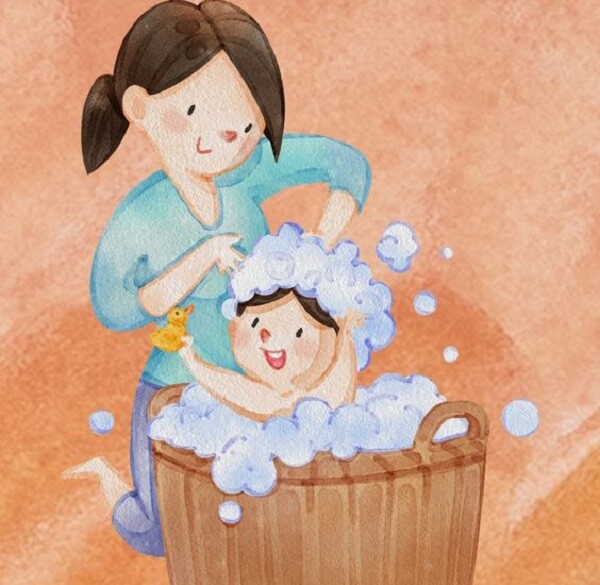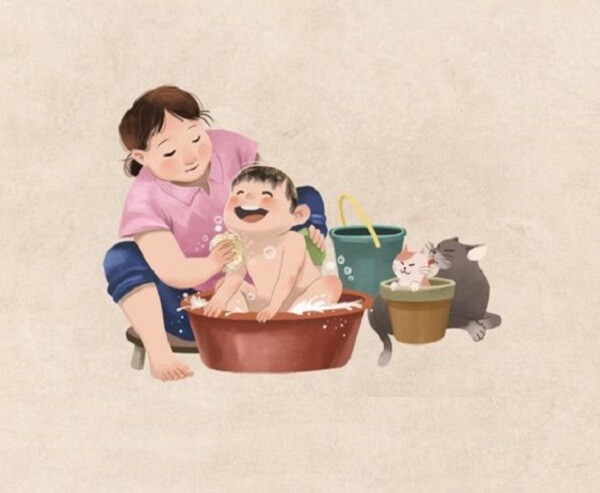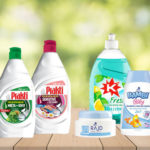

Limit bathing to 2-3 times a week
A newborn’s skin appears delicate and smooth, with a thickness of only 1-2 mm, about half that of an adult’s, and retains far less moisture. This means that a baby’s skin is highly sensitive and susceptible to damage, requiring special care.
The skin’s protective barrier is underdeveloped, resulting in thin skin with poor moisture retention. After three months, sebum production on the skin’s surface nearly disappears, weakening its defensive function. This can lead to dry skin that is prone to irritation and rashes. Some babies may develop redness on their cheeks, indicating that their skin lacks adequate protection and is vulnerable to environmental influences.
During autumn and winter, the air tends to be drier, and bathing infants too frequently can result in dry skin and unpleasant issues such as itching, flaking, or allergies. On the other hand, bathing too infrequently can lead to a buildup of sweat and secretions, particularly in areas like the scalp, forehead, neck, armpits, and other folds. This can cause a sticky, itchy, and uncomfortable feeling for the baby, affecting their sleep and mood.
So, how often should you bathe your baby? It is recommended that before the age of one, when babies are not yet mobile, bathing twice a week is sufficient. If your baby is more active, you can increase the frequency to every other day to ensure their skin remains clean and fresh.
For toddlers and older children, the number of baths can be adjusted according to their level of activity and the weather. In hot weather, daily baths may be necessary to keep your child cool and refreshed. Conversely, during cold or dry seasons, bathing 2-3 times a week is usually enough to prevent dry skin.

Maintain water temperature between 38-40°C
Infants have a less efficient temperature regulation system than adults, making them more susceptible to changes in environmental temperature. Extreme water temperatures, either too hot or too cold, can be harmful to their health. While in the womb, the amniotic fluid temperature typically remains stable at around 37.8°C. Therefore, it is advisable to maintain a similar water temperature for bathing to ensure your baby’s comfort and safety.
The ideal water temperature for baby’s bath is typically between 37-38°C. Higher temperatures, ranging from 38-39°C, can cause discomfort and even increase the risk of burns on their sensitive skin. Your baby may become restless or uncomfortable if the water is too hot, leading to negative reactions such as crying or resisting bath time.

However, during autumn and winter, the weather tends to be colder, and bathing your baby can be more challenging. After lowering your baby into the water, allow them to gently touch and feel truly comfortable with the water. To ensure your baby’s comfort, it is best to slightly increase the water temperature to around 40°C. However, be careful not to make it too hot, as this can harm their delicate skin.
Particularly, a baby’s wrists and elbows are very sensitive and can be used to gauge the water temperature. You can dip your hand in the water to feel if it is too hot. If so, add some cold water to adjust it. The goal is to make your baby feel comfortable without causing burns.
If you are concerned about accurately assessing the temperature, a safer option is to use a water thermometer. It will help you measure the exact temperature, ensuring that the bathwater remains within a safe range.

Maintain a room temperature of 26°C
As the weather cools down, many families use heaters to ensure a warm and comfortable environment for their baby during bath time.
However, it is advisable to turn on the air conditioner before bathing your baby and set the room temperature to approximately 26°C. When undressing your baby, they won’t feel cold due to the room temperature being too low. This also helps ensure that the bathroom air remains pleasant.
Additionally, maintaining a warm bathing environment reduces your baby’s discomfort and anxiety. After bathing, if the room is too cold, your baby may easily catch a chill. Therefore, temperature control is crucial not only during but also after bathing, especially during chilly autumn and winter days.
Moreover, touch and massage during bath time have positive effects. They stimulate the senses and promote brain development. When you massage your baby, the nerves and blood vessels under their skin are stimulated, improving blood circulation and enhancing metabolism.


Keep bath time to 8-10 minutes
During the cooler months, the water temperature will drop as bath time extends, increasing the risk of your baby catching a cold. Therefore, it is essential to monitor the duration of baths. Aim for a maximum of 8-10 minutes to prevent your baby from getting cold. If you heat the water to the ideal temperature to maintain warmth, you can extend the bath time up to 15 minutes while keeping your baby comfortable.
Appropriate temperature and humidity contribute to your baby’s comfort and stable mood. Additionally, autumn and winter often bring dry air, which can cause your baby’s skin to become dry and irritated. Since your baby’s stratum corneum is still fragile and unable to retain moisture effectively, moisturizing their skin is crucial.

To maintain the ideal humidity level, you can use a humidifier to keep the indoor humidity between 45%-65%. This range is comfortable for the human body, helping to prevent your baby’s skin from drying out and avoiding skin issues like flaking or itching.
In addition to controlling the frequency of baths and adjusting the temperature and humidity, pay attention to choosing the right moisturizing products for your baby. As your baby’s skin typically has a pH level between 4.2 and 5.6, select products with a suitable pH level to avoid irritation or damage to their skin.
Your baby’s delicate skin deserves gentle, mild moisturizing products.
Introducing Lovercare Babymac Shampoo and Body Wash
If you’re unsure about which bath and hair care products to choose for your little one, look no further than Lovercare Babymac. This renowned brand hails from Poland and offers a range of gentle and nurturing products perfect for your baby’s delicate skin and hair. Join us as we explore the wonders of Lovercare Babymac and discover why it could be the ideal choice for your child’s bath time routine.
































